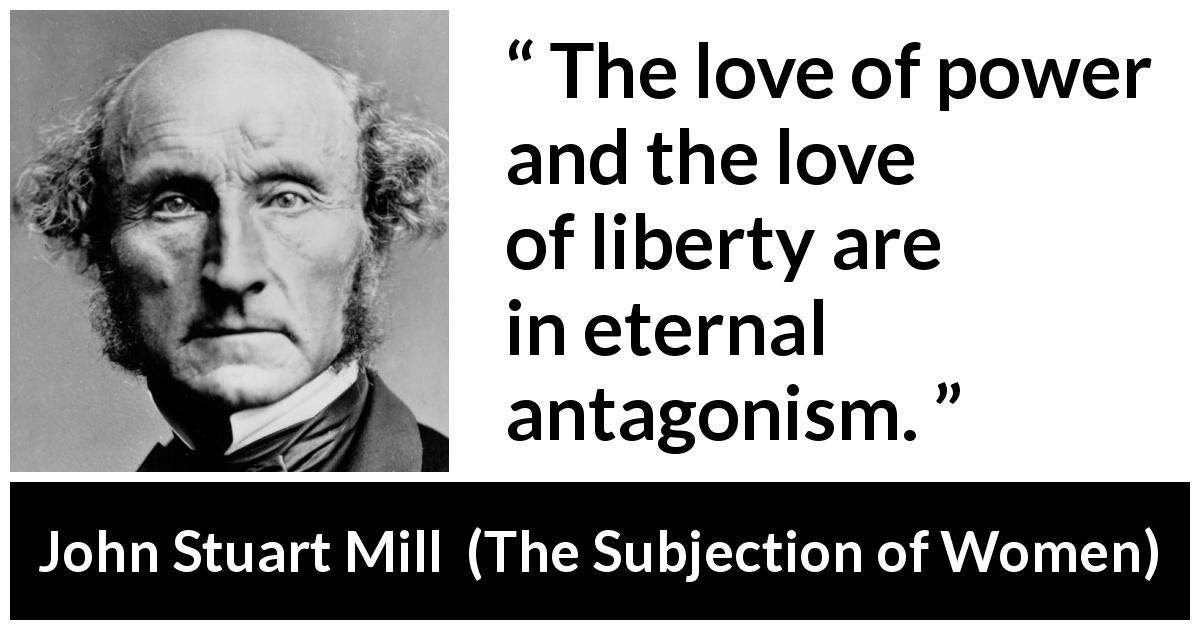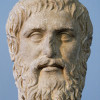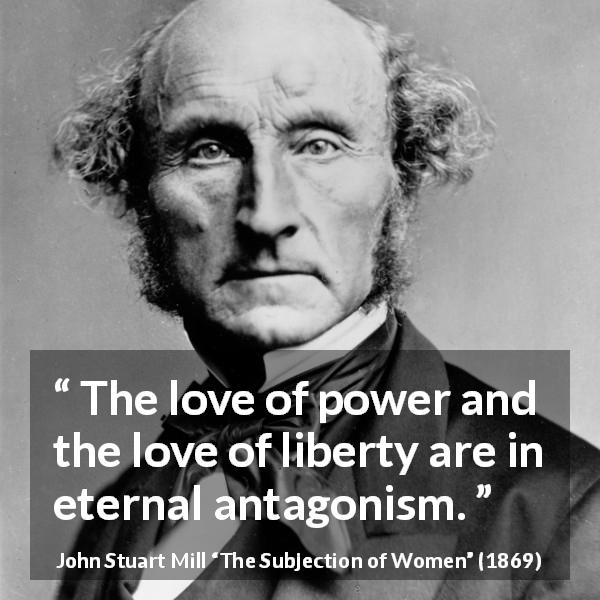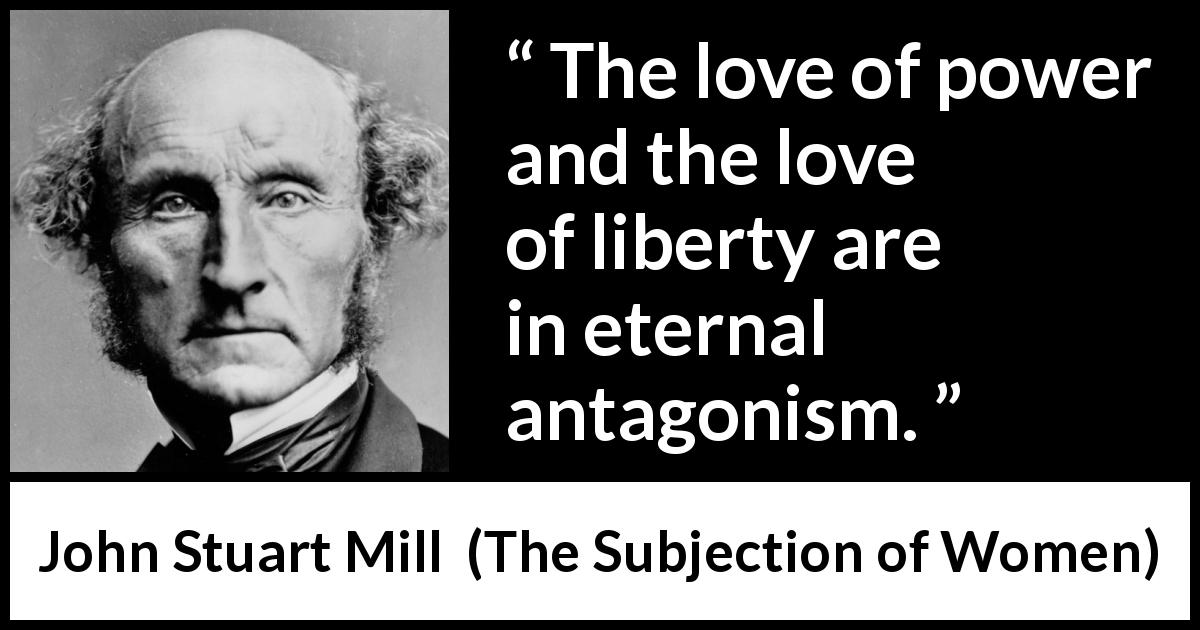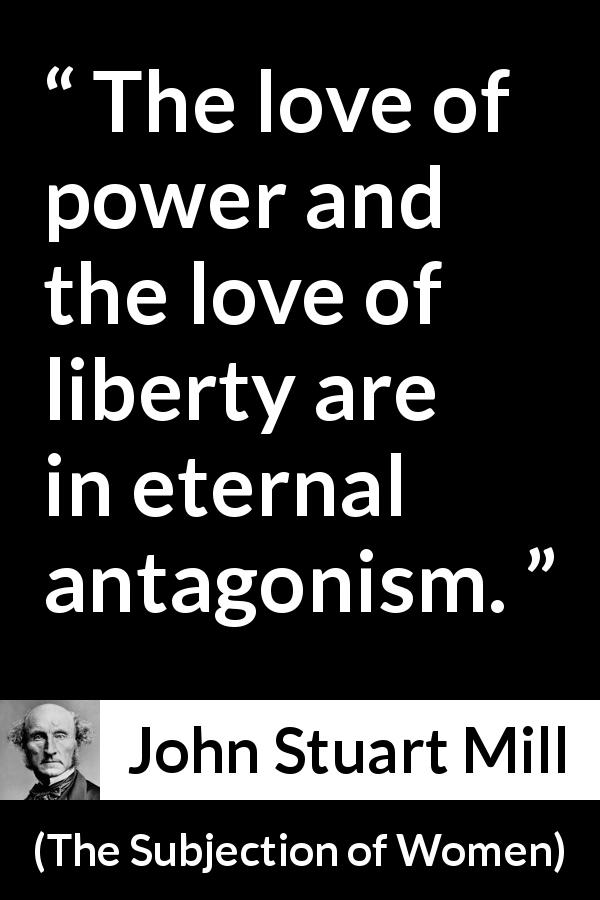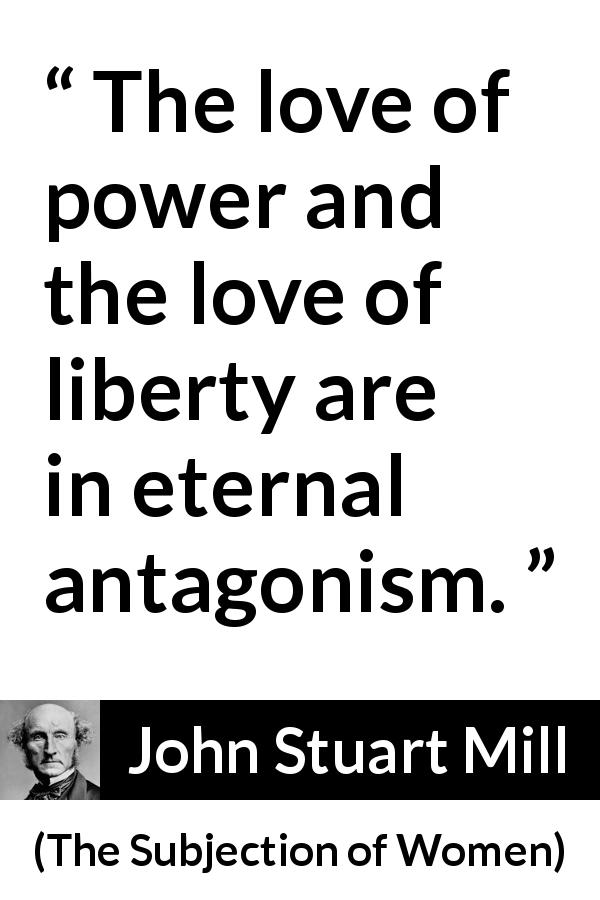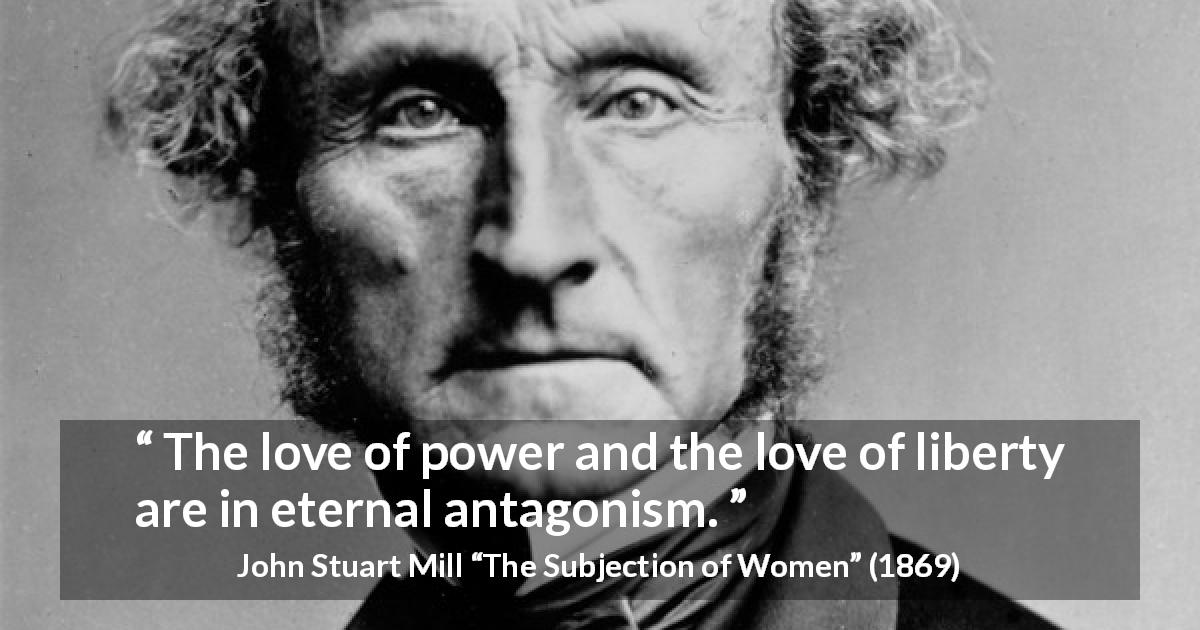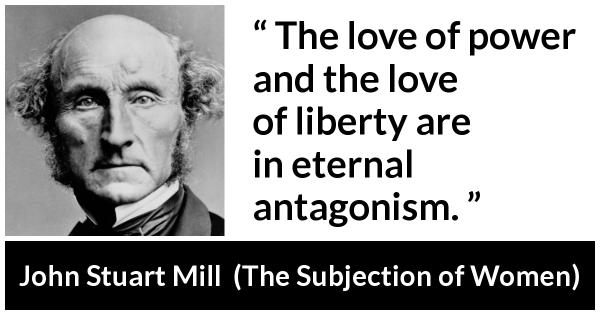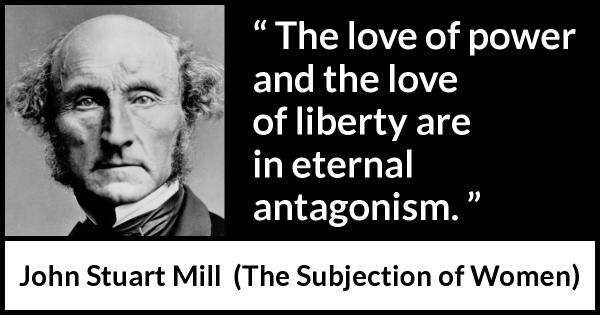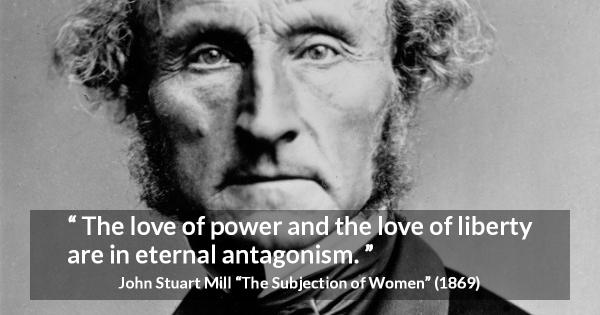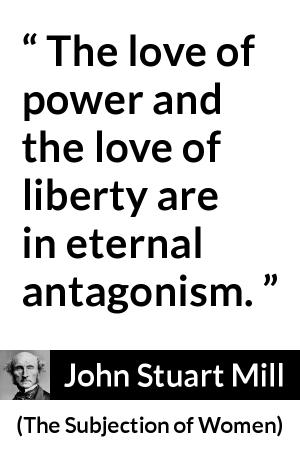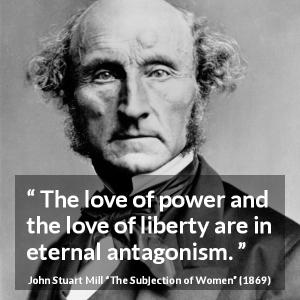“ The love of power and the love of liberty are in eternal antagonism. ”
John Stuart Mill, The Subjection of Women (1869). copy citation
| Author | John Stuart Mill |
|---|---|
| Source | The Subjection of Women |
| Topic | love freedom power |
| Date | 1869 |
| Language | English |
| Reference | |
| Note | |
| Weblink | http://www.gutenberg.org/files/27083/27083-h/27083-h.htm |
Context
“[Pg 182] Where liberty cannot be hoped for, and power can, power becomes the grand object of human desire; those to whom others will not leave the undisturbed management of their own affairs, will compensate themselves, if they can, by meddling for their own purposes with the affairs of others. Hence also women's passion for personal beauty, and dress and display; and all the evils that flow from it, in the way of mischievous luxury and social immorality. The love of power and the love of liberty are in eternal antagonism. Where there is least liberty, the passion for power is the most ardent and unscrupulous. The desire of power over others can only cease to be a depraving agency among mankind, when each of them individually is able to do without it: which can only be where respect for liberty in the personal concerns of each is an established principle.”
source
